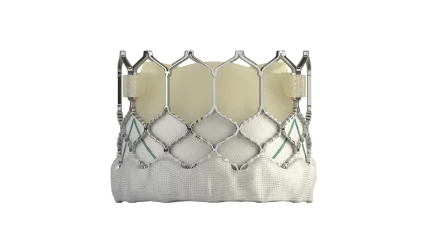
Edwards Lifesciences has unveiled promising five-year data from the PARTNER trials, demonstrating favourable outcomes of its SAPIEN 3 transcatheter aortic valve replacement (TAVR) in patients with small annulus.
The findings were from more than 1,300 low and intermediate risk SAPIEN 3 valve patients.
Pesented at the late-breaking clinical sessions of New York Valves 2024: The Structural Heart Summit, the analysis highlighted valve durability over the five-year follow-up period. This was regardless of the patient’s annulus size or sex.
As part of the analysis, contemporary patient data with long-term follow-up from the PARTNER 3 randomised controlled trial and PARTNER 2 S3i Trial were studied.
The primary objective was to determine whether higher 30-day mean gradients and rates of prosthesis-patient mismatch (PPM) correlated with poorer long-term outcomes, including death, disabling stroke, or hospitalisation caused by heart failure.
According to Edwards Lifesciences, the analysis found no relation between clinical outcomes or valve durability and severe prosthesis-patient mismatch or higher mean gradients.
Moreover, the cohort of patients under study exhibited very low rates of reintervention and demonstrated high survival rates extending out to five years.
The results of the PARTNER 3 trial had previously showcased the highest reported survival rate among low-risk patients in any pivotal trial, said Edwards Lifesciences.
Edwards Lifesciences corporate vice president and transcatheter aortic valve replacement and surgical structural heart group president Larry Wood said: “The PARTNER series of robust pivotal trials, all of which included FDA oversight, rigorously followed more than 12,000 patients treated with Edwards SAPIEN valves rendering them excellent data from which to examine the totality of factors that contribute to valve durability and performance.
“These data are reassuring for patients and clinicians – particularly women who are more likely to receive a smaller valve – that the SAPIEN platform offers excellent survival and very low reintervention rates at five years.”
Recently, Edwards Lifesciences entered into a deal to divest its critical care product division to BD (Becton, Dickinson and Company) for $4.2bn.






